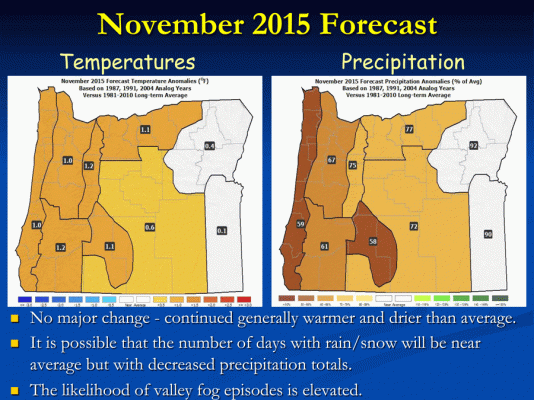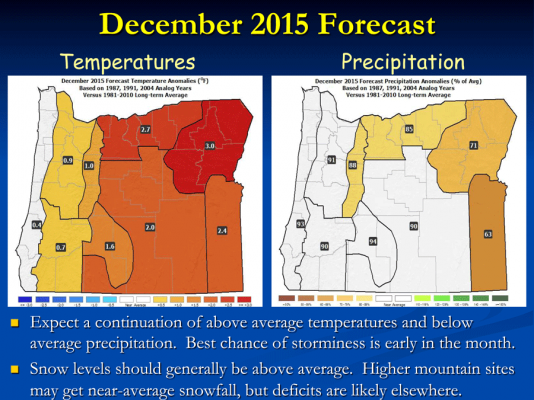herekittykitty
Well-known member
My goal: Avoid freezing weather and, preferably, buckets of rain and/or flooding this winter
Set-up: I can only drive 100 miles a day. Repositioning from the OR coast to Northern CA (because Southern CA is too far a trip to make right now) will take 5 days of exhausting and work-disrupting one-night stops, but that was my plan.
Only staying in TT parks, so was going to split my time going back and forth between Manteca and Lotus, CA.
As a CA native, I know that a Monstruo El Ni?o means lots of rain and local flooding in Northern CA. (Lived through two Russian River floods in two months, one year.)
I also know that Seaside and Florence, OR, in a normal year, get 8-10 inches of rain per month in the winter, but do not really freeze/snow.
Question: If I do drive to Northern CA, aren't I actually just driving into another soaking winter this year? Because if I am, I'd rather just stay put. From the little bit I've read, this winter's El Ni?o is not expected to be just a Southern CA phenomenon, but the whole state. It should also mean higher temps (but not necessarily less rain? do not know) in OR and WA.
Set-up: I can only drive 100 miles a day. Repositioning from the OR coast to Northern CA (because Southern CA is too far a trip to make right now) will take 5 days of exhausting and work-disrupting one-night stops, but that was my plan.
Only staying in TT parks, so was going to split my time going back and forth between Manteca and Lotus, CA.
As a CA native, I know that a Monstruo El Ni?o means lots of rain and local flooding in Northern CA. (Lived through two Russian River floods in two months, one year.)
I also know that Seaside and Florence, OR, in a normal year, get 8-10 inches of rain per month in the winter, but do not really freeze/snow.
Question: If I do drive to Northern CA, aren't I actually just driving into another soaking winter this year? Because if I am, I'd rather just stay put. From the little bit I've read, this winter's El Ni?o is not expected to be just a Southern CA phenomenon, but the whole state. It should also mean higher temps (but not necessarily less rain? do not know) in OR and WA.


